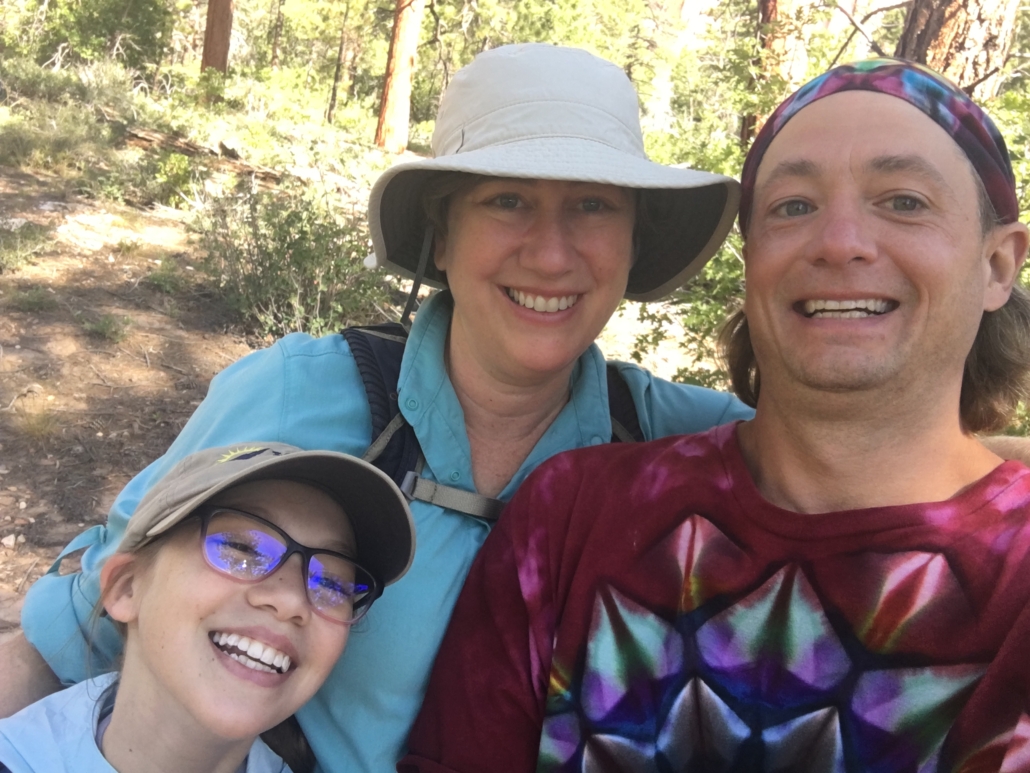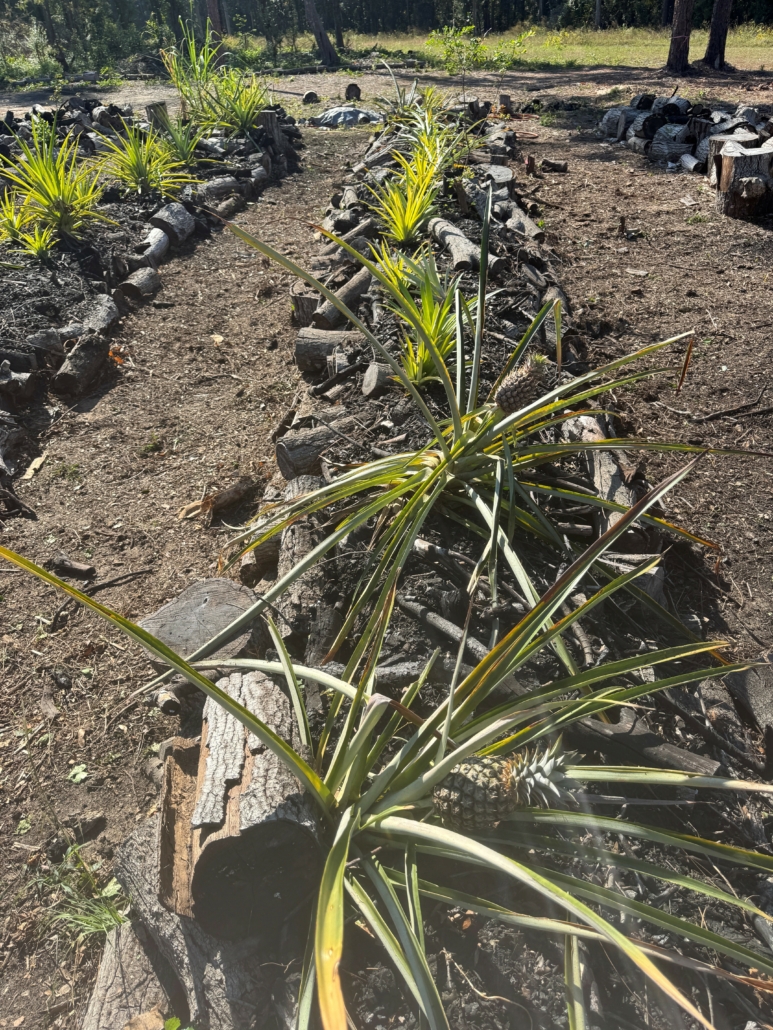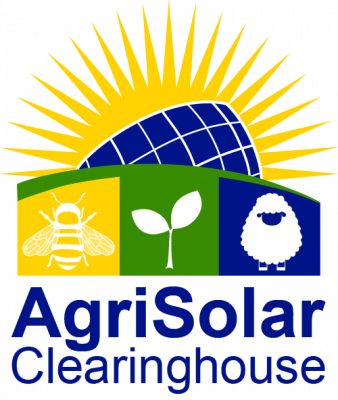By Anna Richmond-Mueller, NCAT Energy Analyst
Known as the “Sunshine State,” it’s easy to see why solar energy production should be right at home in Florida. The state is also one of the country’s top agricultural producers, raising billions of dollars worth of specialty crops and livestock each year. Agrivoltaics seems like a natural fit and a potential option for farmers and ranchers looking to diversify their revenue and support the growth of renewable energy in the state. At Fiddlehead Farms, owners Walter and Sharon Liebrich are embracing that potential, working hard to bring an agrisolar pilot project and educational space to life in Tallahassee.
Walter’s interest in agrivoltaics is deeply rooted in his passion for renewable energy. In 1998, Walter was the High School Florida State Champion in Policy Debate when the yearlong topic debated the pros and cons of increasing the use of renewable energy in the U.S. Then in 2004, he earned a Master’s degree in Public Administration from the Askew School of Public Administration at Florida State University. At the time he was in graduate school, connecting a solar project to the grid was an opportunity largely limited to big businesses and utilities. His thesis advocated for solar net metering and interconnection policies for individuals and small businesses in the state, something that wouldn’t be in the Florida statutes until 2008. After earning his degree, Walter went on to work as a Senior Policy and Budget Analyst in the Governor’s Office for 15 years before transitioning into the solar industry. He is also on the Board of Directors for ReThink Energy, a local nonprofit dedicated to community outreach and education for Floridians as the city moves towards its clean energy goals. Through his work with ReThink Energy, Walter joined the Tally 100% Together Coalition and helped to pass a unanimous city commission resolution in 2023, committing Tallahassee to 100% renewable energy by 2050.

The Liebrich Family.
Walter and Sharon both share a passion for farming and gardening, as well. After meeting in 2009, they started pursuing those passions together by cultivating an edible landscape at their home, with the goal of having their child pick the vegetables for that night’s dinner right in their own backyard. The 0.3-acre primary residence in midtown Tallahassee is home to many varieties of citrus, blueberries, blackberries, fig, pears, mangos, kiwi, avocado, pineapple, peaches and more. They also have a year-round seasonal garden comprised of anything from broccoli, kale, and arugula to tomatoes, peppers, and squash. They began their apiary work in 2019, successfully cultivating bees to help support the worldwide food shortage. By 2023, their impressive dedication to renewable energy and specialty crop production led them to set their sights on a new goal: creating an agrivoltaic community solar project.
Around the same time, the Tallahassee City Commission unanimously adopted the 100% renewable energy resolution, and Walter and Sharon poured their entire life savings into the purchase of a 5-acre piece of property adjacent to a new public park and cypress preserve in Tallahassee. Their vision for the newly purchased land includes a 1-megawatt agrivoltaic array that would provide locally grown produce for the community, while also helping bring the city closer to its 100% renewable energy goals. However, before that vision can come to life, they must overcome some regulatory barriers for solar in the City of Tallahassee. “Anything from 100 kilowatts to 75 megawatts is all basically regulated under the same umbrella, which is extremely cost-prohibitive,” Walter explains. Projects in this size range are required to undergo thousands of dollars of grid and impact studies before an array can be built. Fortunately, thanks to all his volunteer work with ReThink Energy and Tally 100%, Walter has cultivated a network of professionals in the city and utility, who all want to see his vision become a reality. He understands the importance of building bridges further from home, as well. From the National Renewable Energy Laboratory to the Florida State Director of the Office of Energy, Walter continues to make connections that will be vital in the project’s success. He continues to work with city officials towards a positive change in the regulations for mid-size projects, as well.
The solar aspect of the pilot project might still be in the early stages, but there’s already a lot happening at the site on the agricultural front. The unkept land was mostly filled with invasive species and heavily vining plants when Walter and Sharon bought it. Clearing invasive species, wild vines, and other biomass on-site is necessary for the project’s implementation. That doesn’t mean that the site will be clear cut and bulldozed, though. Instead, selected areas will be cleaned up while others will remain largely as they are. Any brush and invasive trees that do need to be removed are being used to create biochar, which Walter then uses to construct the raised beds for the row crops. Kale, broccoli, peppers, tomatoes, squash, pineapple, banana, and kiwi will all make an appearance throughout the year. The site is also home to wild sparkleberries and persimmon bushes. These plants will be incorporated into the site’s agricultural production by grafting their close, more familiar cousins onto the existing bushes. Japanese Fuyu persimmons will be grafted onto the wild persimmon bushes, and blueberries will be grafted onto the sparkleberries. Once the plans for solar panels are solidified, they will be built around and above the raised beds and bushes already in place.

Biochar raised beds.
Looking ahead, Fiddlehead Farms hopes to make a positive impact on both local communities and the agrisolar research community. Most of the food grown at the site will be donated to Second Harvest of the Big Bend, a nonprofit fighting food insecurity in the region. When it comes to research, Walter understands the importance of having test sites and welcomes collaborations with universities, research institutions, and solar companies. He hopes to install a variety of racking types, tracking abilities, and panel heights across the site. Fiddlehead Farms is also a nonprofit organization, and anyone interested in becoming involved in the project is encouraged to reach out to Walter and his team at fiddleheadfarmstlh@gmail.com.
It’s easy to see the decades of passion and vision behind Fiddlehead Farms. Pilot projects play an important role in showcasing the potential for agrivoltaics to truly make a difference in local communities. Whether it’s providing locally grown food to those in need or working with public officials to make positive changes in renewable energy policy, Fiddlehead Farms is poised to do it all for the Tallahassee area. “From the beginning, I’ve understood the importance of building all kinds of bridges. National, state, and local – even the friends that we’ve made here with the neighbors at the site,” Walter explains. Fiddlehead Farms is the next step in bringing those people together and strengthening the resiliency of the local community.
All photos courtesy of Walter Liebrich.
